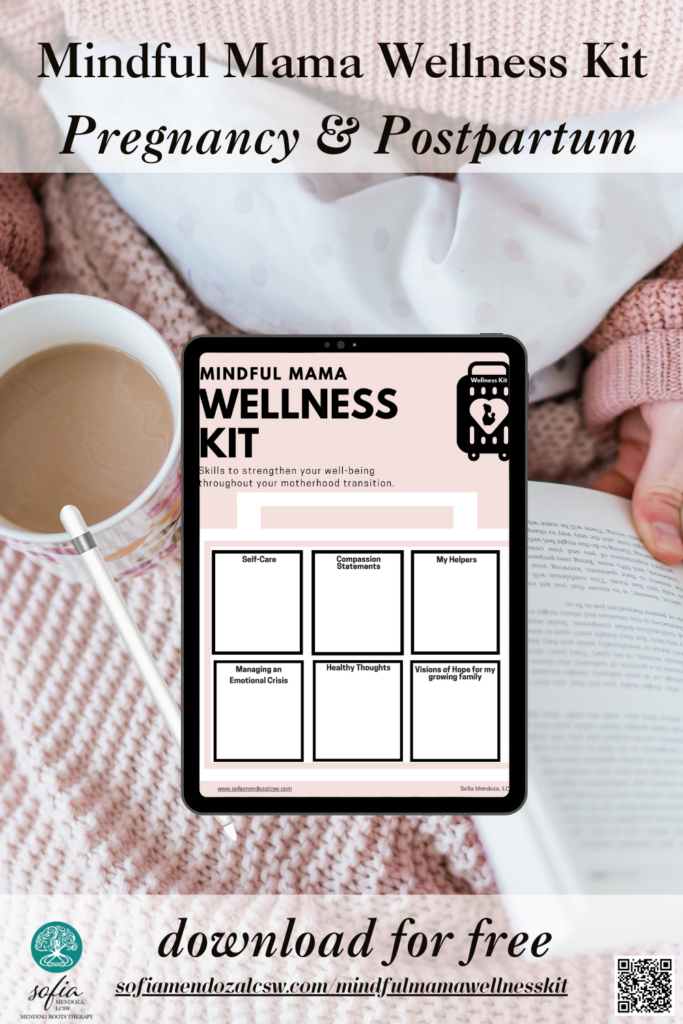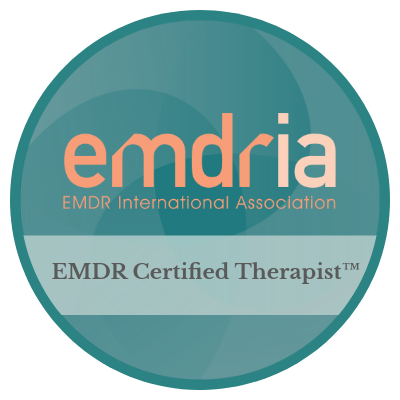
By Sofia Mendoza, LCSW
The Reality of Maternal Mental Health
Maternal mental health affects us all—our communities, our families, and especially our mothers themselves. As a therapist who’s worked with many mothers of color, I’ve seen firsthand how cultural expectations, systemic barriers, and lack of support create unique challenges. Let’s look at what the research tells us about these experiences. I prepared this list of statistics as I was getting ready to participate in a Maternal Mental Health panel in the community highlighting the mental health risks for BIPOC mothers. I also created the Mindful Mama Wellness Kit that can be used to plan out pre and post birth resources, coping, warning signs, etc. You can use it on your own or with your therapist, doctor, midwife or birthing center staff.
The Numbers Speak: General Maternal Mental Health Statistics
- Approximately 600,000 mothers in the U.S. (about 20%) experience maternal mental health disorders like postpartum depression each year.
- It’s estimated that more than 50% of mothers with maternal mental health conditions are never diagnosed by healthcare professionals.
- A shocking 75% of women with maternal mental health issues never receive the treatment they need.
- Untreated maternal mental health disorders cost the U.S. approximately $14.2 billion annually.
- Globally, around 20% of mothers in developing countries experience clinical depression after childbirth.
BIPOC Mothers Face Increased Risk
- Postpartum depression is 40% greater in Latina mothers and 80% greater in Black mothers living in small cities and rural communities compared to their white counterparts.
- BIPOC mothers face significant barriers to care including cultural expectations, lack of access to mental health services, “one-size-fits-all” screening tools that fail to recognize cultural differences, fear of discriminatory attitudes, and mistrust of healthcare systems stemming from systemic racism.
- The maternal mental health crisis is not just about neurochemical causes; racism, discrimination, and social inequities have inflicted multi-generational trauma on BIPOC communities, contributing to mental health conditions and barriers to care.
- Black, American Indian/Alaska Native, and other women of color are particularly vulnerable to disparities in both rates of maternal mental health conditions and access to care.
Impact on Children & Families
- Untreated maternal mental health conditions can result in withdrawn, unresponsive mothers who struggle to interact with and support their infants.
- Children of mothers with untreated mental health conditions may develop behavioral challenges, emotional maladjustment, and delayed cognitive functioning.
- According to the CDC, maternal mental health conditions (including suicide and overdose) are the leading cause of pregnancy-related death.
Hope & Support
Despite these challenges, there is hope. Most maternal mental health conditions are treatable with proper support:
- The majority of women with postpartum depression can be treated successfully through services like psychotherapy and community support groups.
- The National Maternal Mental Health Hotline provides 24/7 voice and text support in English and Spanish, with translation services in 60 additional languages.
- More states are working to improve maternal mental health outcomes, though progress is still needed.
- Cultural strengths, community wisdom, and healing-centered approaches can provide pathways to recovery.
My Approach to Maternal Mental Health
As a First Gen Latina therapist with over 16 years of clinical experience, I bring a culturally responsive approach to maternal mental health treatment. I understand that healing happens within cultural contexts, and I honor the lived experiences of teen and BIPOC mothers.
My approach includes:
- Evidence-based practices including EMDR, CBT, DBT and ACT, adapted through cultural frameworks and maternal mental health specialty
- Bilingual services (English/Spanish)
- Integration of cultural strengths and ancestral wisdom in the healing process
- Recognition of systemic factors that impact maternal mental health
- Creating spaces where your whole identity is welcomed and respected
- Practical skills based approaches to help you center your wellness so that you can parent in a way that aligns with your values and vision for your family
Mindful Mama Wellness Kit
I’ve developed the Mindful Mama Wellness Kit specifically for pregnant and postpartum mothers navigating the complex emotional terrain of motherhood. This comprehensive resource helps you create a personalized wellness plan that addresses your unique mental health needs during this significant life transition. The kit includes journaling prompts, cultural affirmations, breathing exercises, boundary-setting worksheets, and community resource guides—all designed with cultural sensitivity and an understanding of the specific challenges faced by BIPOC mothers. This tool empowers you to recognize early warning signs, practice daily self-care rituals, and build a support network that honors your cultural background and lived experiences.
How to work with me:
If you or someone you know is experiencing maternal mental health challenges, I invite you to reach out for a consultation. Together, we can create a path toward healing that honors your unique experiences and cultural strengths.
Contact me:
- Email: sofia@sofiamendozalcsw.com
- Website: www.sofiamendozalcsw.com
Initial consultations are available virtually.
Resources
- National Maternal Mental Health Hotline: Call or text 1-833-943-5746 (1-833-9-HELP4MOMS)
- Postpartum Support International: 1-800-944-4773
- Crisis Services: 988 Suicide & Crisis Lifeline
This information sheet was created to raise awareness about the unique mental health challenges facing BIPOC mothers. If you or someone you know is struggling with maternal mental health, please reach out to a healthcare provider or use one of the resources listed above.




